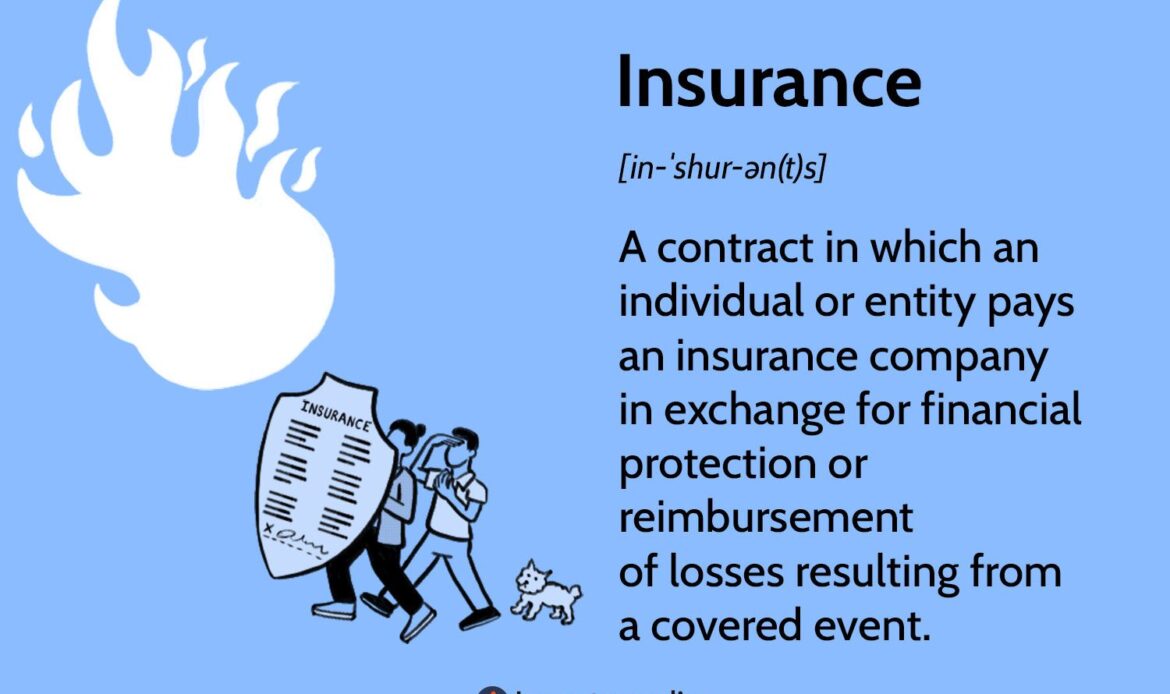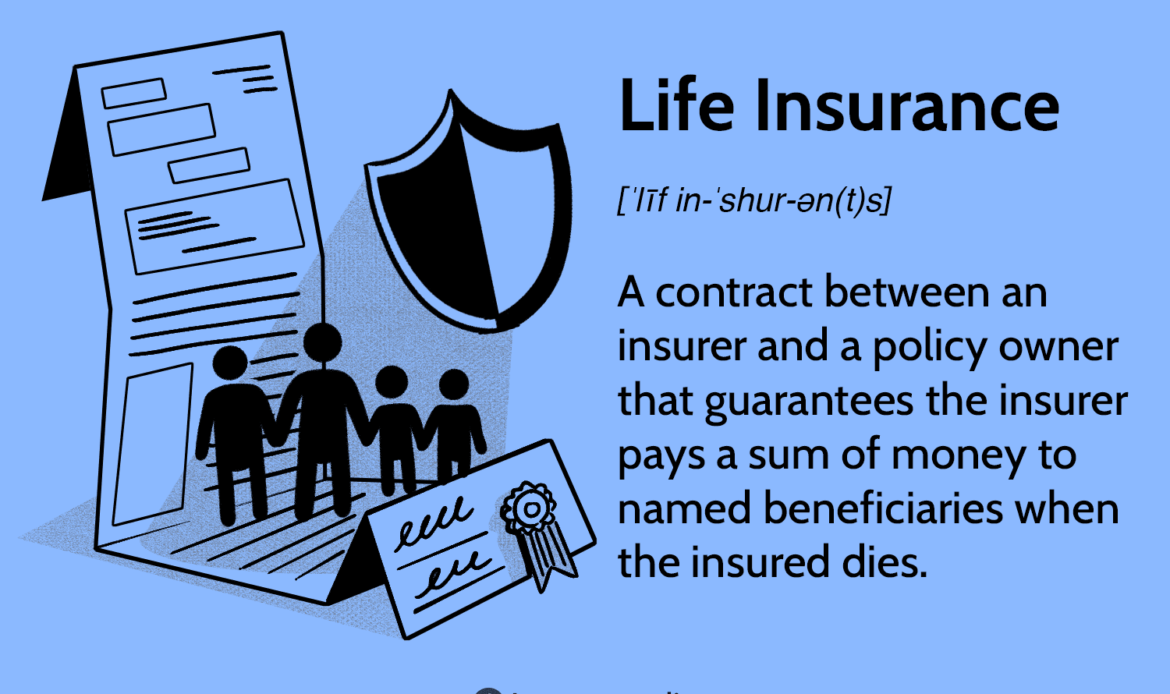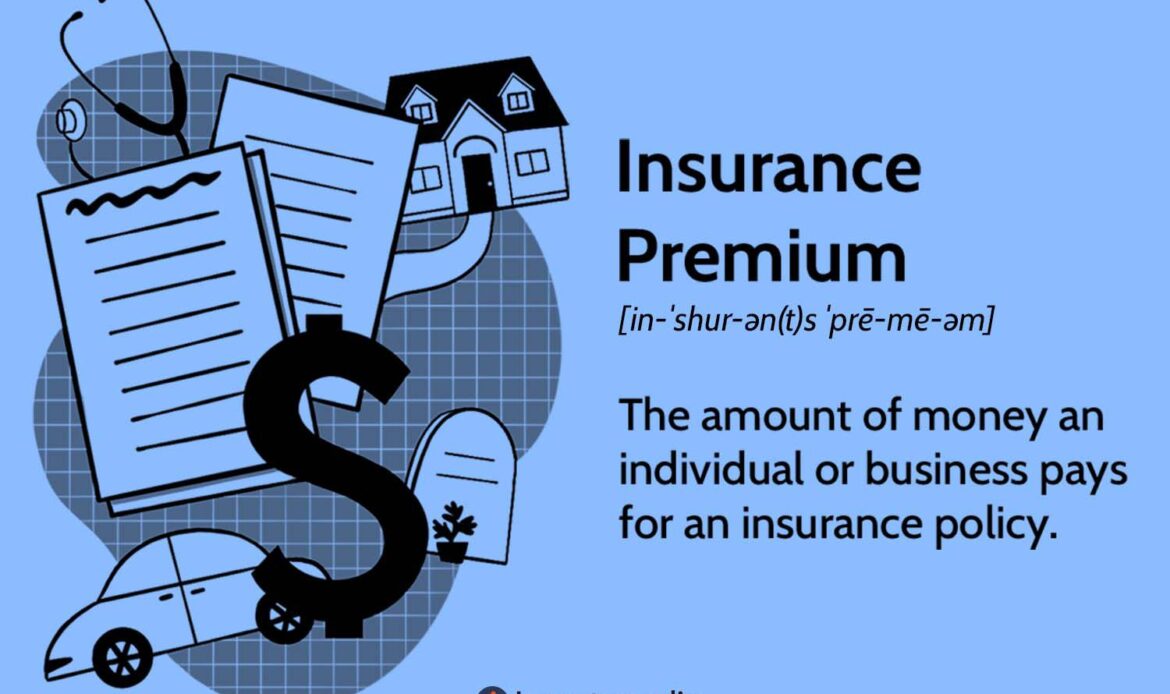
Insurance provides financial security in today’s unpredictable world by protecting us from life’s uncertainties. It is essential in safeguarding our health and shielding our homes and businesses from unforeseen perils. Let’s explore the various aspects of insurance and understand its significance. We’ll simplify the complex world of insurance and make it easier to understand.
The Concept of Insurance
Insurance is an agreement between two parties—an individual or company (the insured) and an insurance firm (the insurer). The insured pays a fee called a premium, and in return, the insurer agrees to provide financial assistance in case of a covered loss or event. This financial help is known as a claim. It helps the insured reduce the financial impact of the loss and helps in recovery.
How It Works
Insurance is a way to cover yourself against certain risks. When you buy insurance, you pay the company, known as premiums. If you have a loss, the company agrees to pay you. This could be a theft or a fire, for example.
Insurance is based on the idea that spreading the risk of a loss among many people makes the risk lower for everyone. Many clients pay premiums to the insurance company. Not everyone will have a loss simultaneously, but you may get insurance money to pay for it if you do.
Everyone doesn’t need to get insurance, but it’s a good idea if you have a lot of financial risks or investments. However, if a bank holds a mortgage, insurance is usually required to approve the loan.
Read: A Simple Guide to Personal Budgeting
Types of Insurance
Insurance comes in a myriad of forms, each tailored to address specific risks and needs:
- Life Insurance: If you die, life insurance pays a sum of money to your beneficiaries. This money can be used to pay for funeral or ongoing living expenses.

- Health Insurance: Health insurance covers medical expenses, including doctor visits, hospital stays, medications, and preventive care. This helps you avoid high medical bills and ensures you have access to necessary medical services.
- Auto Insurance: Auto insurance protects you financially if you are involved in a car accident, if your car is stolen, or if it is damaged. It usually covers repairs to your vehicle, medical expenses for injuries, and damage to other people’s property.
- Home Insurance: Home insurance protects your home and belongings in case of damage or loss. It covers things like fire, theft, vandalism, and natural disasters. It also covers liability if someone is injured on your property.
- Property Insurance: Property insurance is similar to home insurance, but it’s for commercial properties like buildings, equipment, and inventory. It protects against damage or loss from fire, burglary, and severe weather events.
- Travel insurance: Travel insurance helps protect you financially if unexpected events disrupt your travel plans. This can include trip cancellations, medical emergencies, lost luggage, and travel delays. It provides peace of mind and reimbursement for expenses.
Read: Arunma Oteh Is Pioneering Leadership in Finance and Development
The Crucial Role of Insurance
Insurance is an essential part of financial planning that offers many advantages. It can help prevent financial difficulties and losses caused by unexpected events, like accidents or natural disasters.

By offering financial compensation in the event of a loss, insurance provides peace of mind for policyholders and allows them to deal confidently with life’s uncertainties. Insurance is often required by law, such as auto insurance, which is mandatory in most regions to drive on public roads legally.
Mortgage lenders may also require home insurance to protect their investments. Insurance also helps safeguard homes, vehicles, and businesses against potential risks, preserving their value and ensuring their continued viability.
Finally, insurance is crucial in maintaining economic stability by spreading risk across a broad pool of policyholders and facilitating recovery after disasters and emergencies.
Investing in insurance can help one protect oneself from financial hardship and secure a better future. Individuals and businesses can safeguard what matters most by understanding the different types of insurance available and selecting the appropriate coverage that meets their needs.
It is important not to wait until disaster strikes to invest in insurance. Take action today to ensure a brighter and more secure future.
